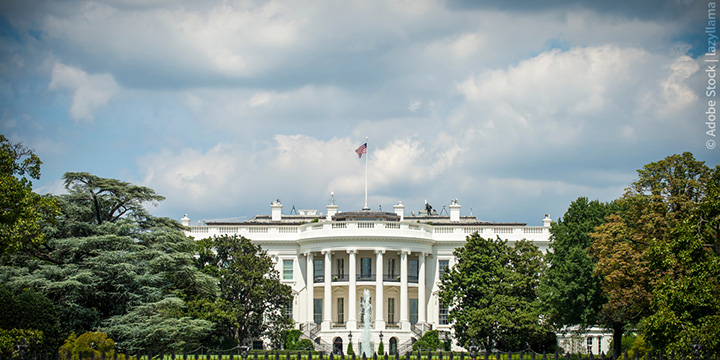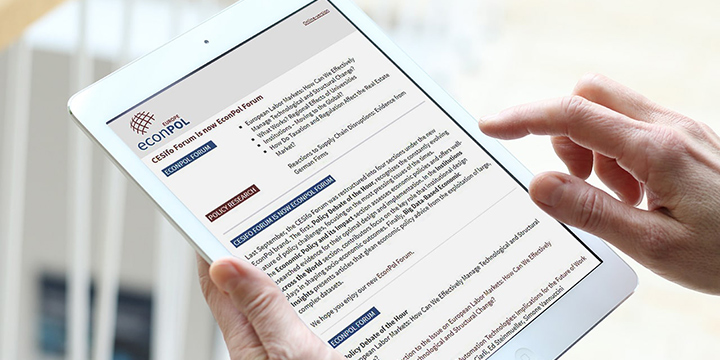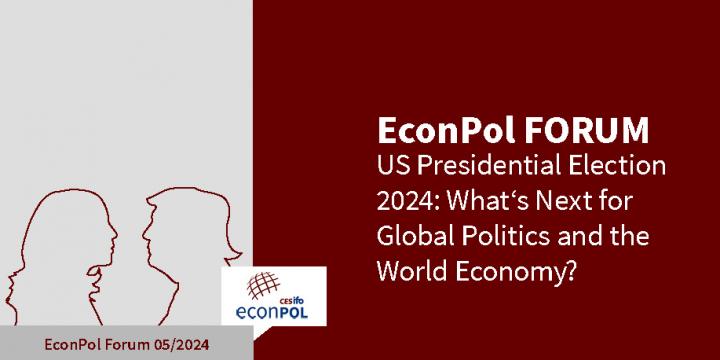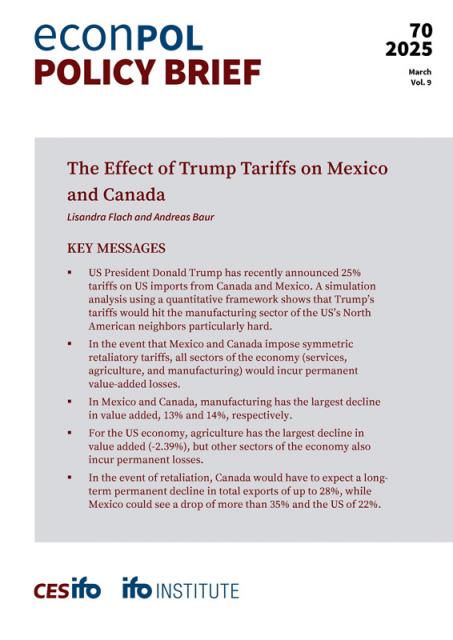News Archive

Defense Spending of 2 Percent of GDP is Not Enough
|
Policy Brief
| News
Defense spending above the NATO target of 2 percent of gross domestic product would be necessary for Europe to be able to defend itself without the protective umbrella of the United States. This is the conclusion of the new EconPol Policy Brief. European countries would have to significantly increase their efforts to catch up with an adequate defense capability, as defense budgets and military investments have been too low for years. Europe must compensate for higher real military costs than, for example, in Russia or China.

German Industry Views a Trump Election Victory as Damaging
|
Policy Brief
| News
44 percent of German manufacturing companies expect a negative impact on their business if Donald Trump is elected US President instead of Kamala Harris. This was shown by a survey of 2,000 companies. For 51 percent, it makes no difference, while 5 percent expect positive effects from Trump.

EconPol Newsletter: Harris vs. Trump
|
Newsletter
| News
With the U.S. presidential election just around the corner, the new issue of EconPol Forum looks at the implications for global politics and the global economy. Clemens Fuest and Maria Waldinger explain why reducing greenhouse gases is not enough to fight climate change. And a new Policy Brief examines the relationship between competent board oversight and bank performance. Find out more in our new Newsletter!

Supervisory Board Competence as a Risk Factor for Banks
|
Policy Brief
| News
The downfall of Credit Suisse should serve as a lesson that supervisory board competence determines the long-term risk of a bank. In Germany, this idea is also enshrined in law. But this study of German banks shows, there is still a long way to go.

US Presidential Election 2024: What's Next for Global Politics and the World Economy?
|
EconPol Forum
| News
The US 2024 elections have the potential to reshape international trade, climate policy, and the geopolitical landscape decisively. In this latest issue of EconPol Forum our authors critically compare the policy proposals of the leading presidential candidates and assess the likely consequences of their policy differences for the US economy and their global spillover effects. The authors also make some policy suggestions on how Europe and other regions of the world could counter US protectionism and other discriminatory measures.
